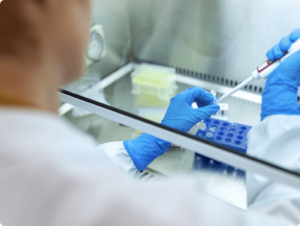
In today’s world, where environmental concerns are growing rapidly, understanding and monitoring our surroundings has become more crucial than ever. Environmental testing services (ETSs) play a pivotal role in this process, offering essential insights into the quality of our air, water, soil, and overall environment. These services help individuals, businesses, and governments make informed decisions to protect public health and the environment.
The Importance of ETSs
ETSs are critical for identifying potential hazards in our surroundings. These hazards can range from chemical contaminants in drinking water to pollutants in the air we breathe. Without proper testing, these dangers may go unnoticed, leading to serious health risks and environmental damage.
One of the primary reasons for conducting environmental testing is to ensure compliance with local, state, and federal regulations. Governments worldwide have established strict guidelines to protect the environment and public health. Companies, particularly those in industries like manufacturing, agriculture, and construction, must adhere to these regulations to avoid legal repercussions and ensure the safety of their operations.
Another significant reason for environmental testing is to assess the impact of human activities on the environment. As industries expand and urbanization increases, the natural environment is often affected. Testing helps measure this impact and identify ways to mitigate it, ensuring that development occurs sustainably and responsibly.
Types of Environmental Testing
- Air Quality Testing: Air quality testing measures the levels of pollutants in the air, such as carbon monoxide, sulfur dioxide, nitrogen oxides, and particulate matter. These pollutants can have serious health effects, particularly for individuals with respiratory conditions like asthma.
- Water Quality Testing: Water quality testing assesses the presence of contaminants in water sources, including drinking water, groundwater, and surface water. Common contaminants include bacteria, heavy metals, pesticides, and industrial chemicals.
- Soil Testing: Soil testing determines the composition and quality of the soil in a specific area. This type of testing is particularly important for agricultural purposes, as it helps farmers understand the nutrient levels and potential contaminants in their soil.
- Asbestos Testing: Asbestos is a hazardous material that was once widely used in construction. Although its use has been banned in many countries, asbestos-containing materials can still be found in older buildings. Asbestos testing is crucial for identifying the presence of this dangerous material, ensuring that it is safely removed and does not pose a risk to occupants.
- Mold Testing: Mold can grow in damp, poorly ventilated areas and poses significant health risks, including respiratory issues and allergic reactions. Mold testing services help detect the presence of mold in homes and buildings, enabling property owners to take necessary remediation steps.
- Hazardous Waste Testing: Hazardous waste testing identifies potentially dangerous materials that require special handling and disposal. This type of testing is crucial for industries that produce waste products, ensuring that they are disposed of safely and in compliance with environmental regulations.
Why It Is Vital to Know Our Surroundings
- Protecting Public Health: ETSs help identify harmful pollutants and contaminants that can cause serious health issues, including respiratory problems, neurological damage, and cancer.
- Preventing Environmental Damage: Testing helps us understand the impact of human activities on the environment, enabling us to take corrective actions before irreversible damage occurs.
- Ensuring Sustainable Development: As communities grow and industries expand, it’s crucial to balance development with environmental preservation. Environmental testing provides the data needed to make informed decisions that support sustainable growth.
- Enhancing Quality of Life: Clean air, safe drinking water, and uncontaminated soil contribute to a higher quality of life. By investing in ETSs, we can ensure that our surroundings remain safe and healthy.
Summing up, environmental testing services are essential tools for understanding and protecting our surroundings.
